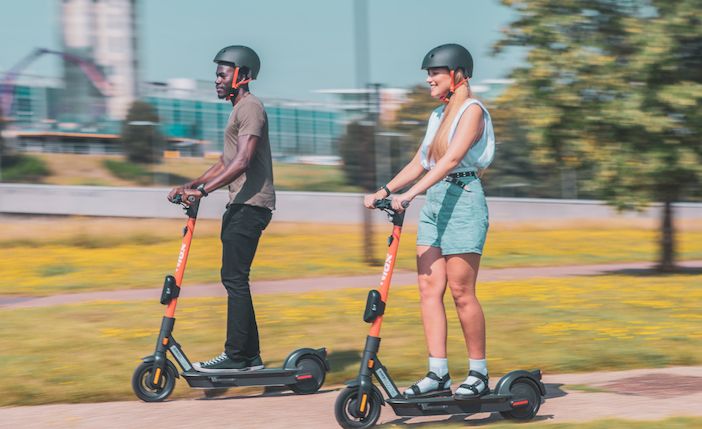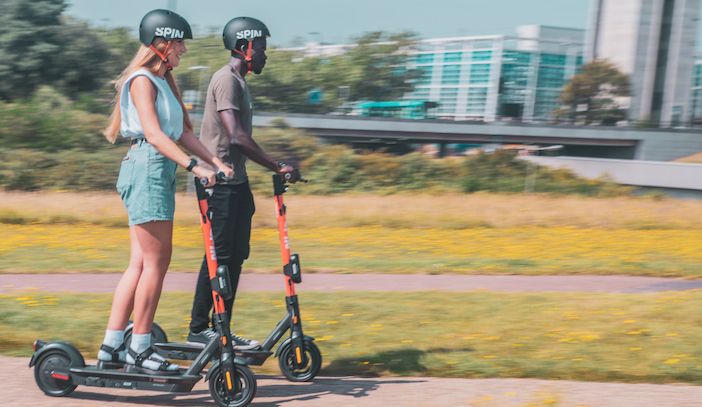Ford-owned e-scooter firm Spin has announced an investment in safety with the launch of a new £100,000 Micromobility Research Fund in the UK, which will bring together 10 universities from the UK and US along with mobility experts to study e-scooter safety, over the next 12 months.
They will study various safety aspects of e-scooter use as well as rider travel behaviour and the challenges and opportunities of the integration of e-scooters within a city’s road systems and existing public transport networks.

“The willingness to share independent research and learnings about the adoption of e-scooters with key stakeholders has become less of a priority for operators and this needs to change,” says Josh Johnson, public policy manager at Spin. “We are committed to improving and advancing micromobility policy frameworks globally in the markets we operate in.
“These studies will give everyone fresh and actionable insights. We look forward to sharing best practices with stakeholders in the UK and beyond around how to best integrate e-scooters into local transport networks while maximising safety of all road users and provide communities with a green, fun and socially-distanced way to travel.”

Safe travel behaviour will be at the centre of research topics and will build on Spin’s solid research-based policy work developed in the US over the past twi years.
“Our top priority has always been rider safety. All operators have a responsibility to their riders to not only exceed vehicle safety standards but provide a platform to educate riders on safety best practices and how to be mindful of pedestrians and other road users,” says Johnson.
Preparation for the first piece of research is under way in Milton Keynes – with potential to extend it to other cities, including London once the e-scooter trial kicks off in the capital.

The study will be informed by a diverse set of data sources including qualitative and quantitative consumer survey data and on-street AI and IoT sensor data of e-scooter interactions with pedestrians, cyclists and cars captured by Vivacity Lab’s sensors that are installed in the city. The researchers will have access to anonymised e-scooter movement data (GPS) as well.
Vivacity’s roadside sensors employ machine learning algorithms to detect near-miss incidents and are able to analyse movement patterns of vulnerable road-users such as cyclists and pedestrians, as well as non-connected vehicles. Such data will be invaluable to assess why near-misses may happen and what could be possibly done to minimise them. All data shared by the sensors is anonymised with video feeds discarded at source, enabling safer roads without intruding on privacy.

The research may include outputs such as a mapping of “safe routes” based on riding patterns and user feedback, and recommendations on how local authorities and operators could encourage riders towards a safer use of e-scooters. Recommendations may also include infrastructure improvements or other policy changes to enhance roadway safety for all users.





